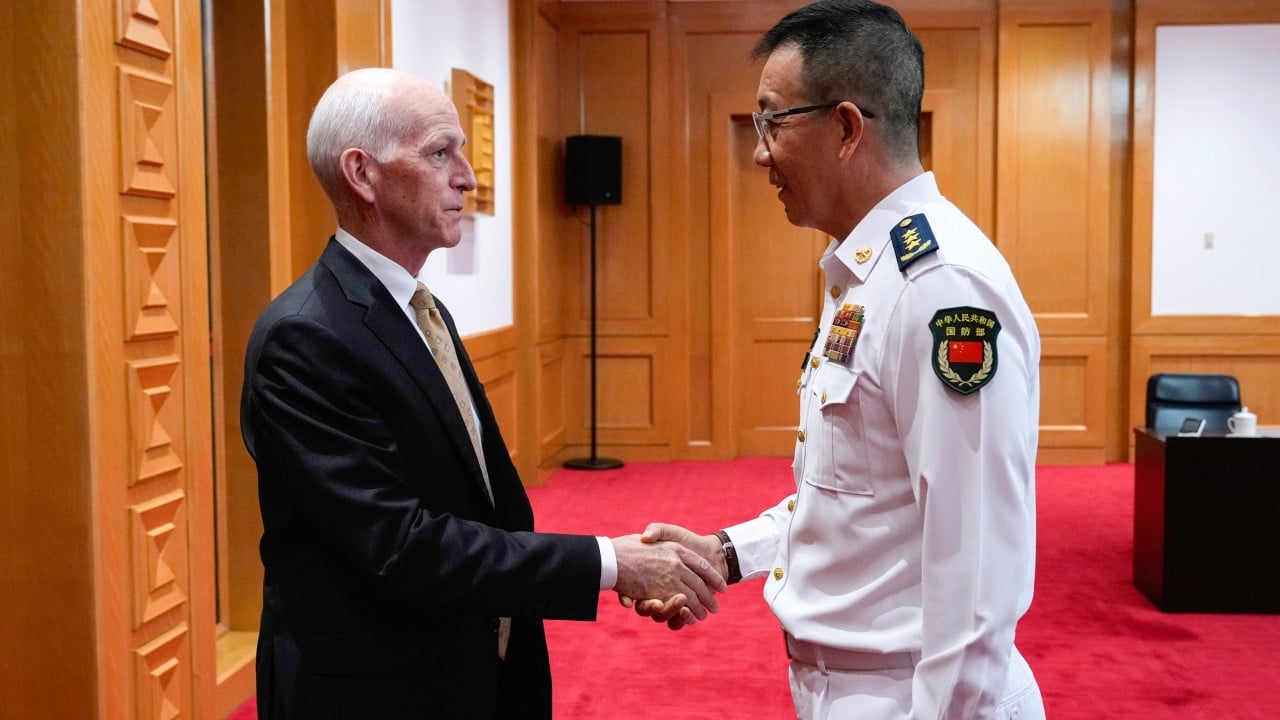A lack of military-to-military communication between the United States and China is “dangerous” and could lead to miscalculation and “larger problems”, a US lawmaker from the House Armed Services Committee said after meeting Chinese officials, including Defence Minister Dong Jun.
Advertisement
Adam Smith, the committee’s top Democrat and former chairman, said Beijing needed to understand that it must have greater engagement with other large militaries – including the US – given its fast-rising military strength and nuclear arsenal.
Smith, who is leading a bipartisan delegation to Beijing, told a press briefing on Tuesday that the military relationship between the US and China was of particular concern, noting that China was the “most rapidly growing military and the most rapidly growing nuclear power in the world”.
“It is dangerous for us not to be having regular communications about our capabilities and intentions so we understand each other and so that miscalculations and misunderstandings don’t lead to larger problems,” he said.
While he said China’s view of wanting a strong military to defend its interests was “logical”, Smith also stressed that Beijing needed to understand that “now they are such a large military that they need to have more conversations with other large militaries in the world for basic deconfliction”.
Especially with rapid advancements in technology, including in artificial intelligence and cyberspace, “the risk of a misunderstanding of capabilities on one side or the other is great”, he said.
Advertisement
This was the case with nuclear weapons, Smith said, adding that even as Beijing downplayed its nuclear strength, “it’s time to start having a conversation about it, to make sure that we understand each other, and we don’t stumble into any sort of conflict”.
The delegation includes two other members of the House Armed Services Committee in the first such visit to China since 2019. A party of senators last visited in 2023, and Republican Senator Steve Daines of Montana visited Beijing in March, where he met Chinese Premier Li Qiang and Vice-Premier He Lifeng.

